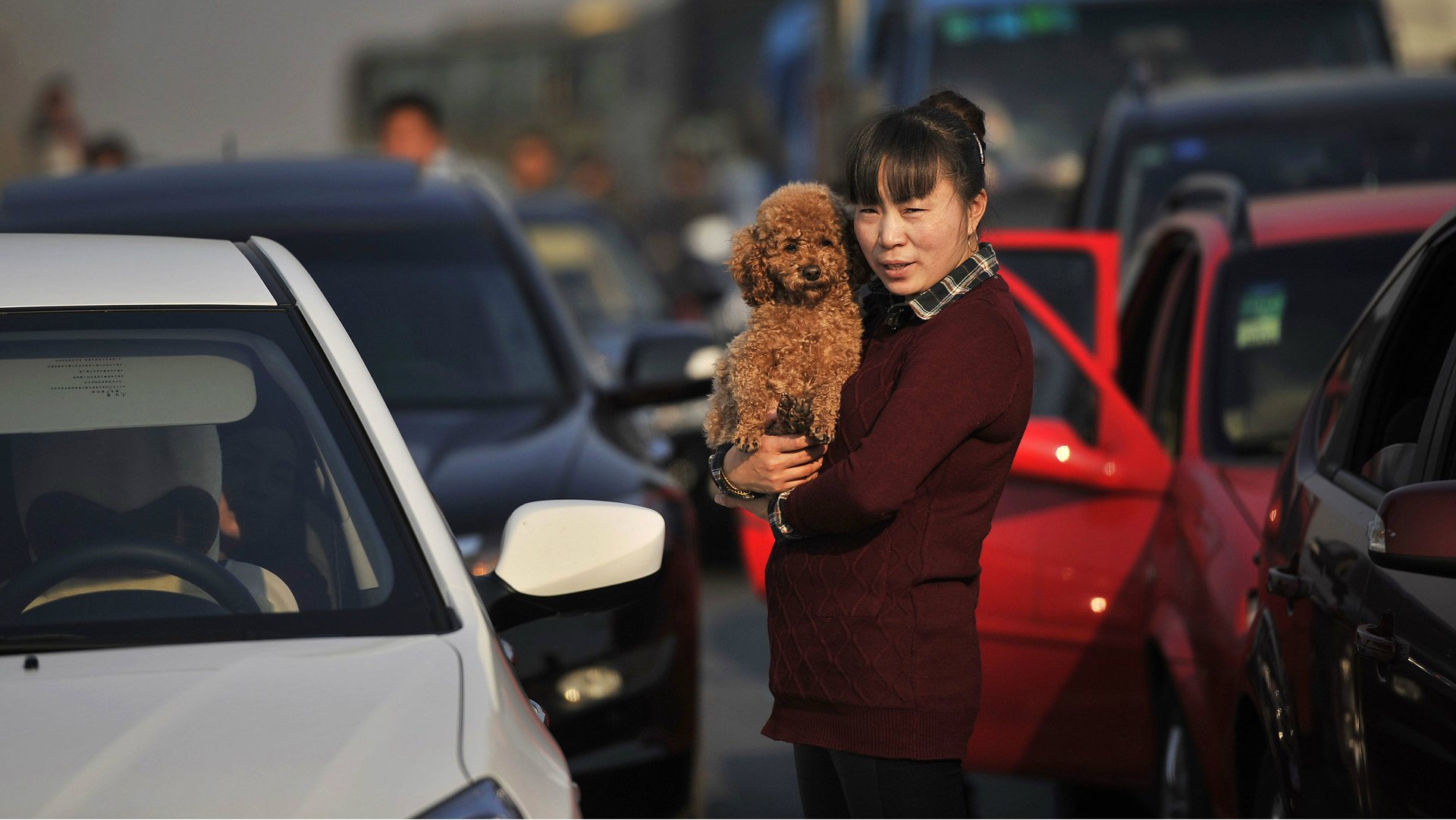Uber needs more drivers in China. A partnership with a state-owned carmaker will help
Uber faces formidable competition in China, mainly from Didi Kuaidi. But it’s getting a bit of help to fight off its local rival—from the Chinese state.


Uber faces formidable competition in China, mainly from Didi Kuaidi. But it’s getting a bit of help to fight off its local rival—from the Chinese state.
The company announced yesterday (Dec. 22) it will receive a strategic investment from Guangzhou Automobile Group (GAC), one of the country’s state-owned automakers and dealers.
According to Uber, in addition to receiving an undisclosed capital injection, the two firms will work together to boost “auto sales, services, financing, and marketing, with a particular emphasis on promoting new energy vehicles.” Uber and other ride-hailing companies need drivers first to get more customers; if drivers don’t own cars themselves, ride-hailing companies can step in to make make it easier to buy one.
Judging from similar arrangements in the US—GM, Toyota, and others—Uber will likely work with GAC to connect drivers with dealerships and help them finance vehicles, with the intent of getting them to buy their own cars and use them on Uber—and they’ll probably have to, as the cars will likely put them in debt.
But a financing partnership between Uber and a carmaker has even more potential in China than it does in the US. New car ownership is expected to grow 8% this year in China, compared to 1.% in the US, according to Bloomberg. Most of that growth will come from third- and fourth-tier cities (pdf, pg. 5), where disposable income is lower, argues PriceWaterhouse Cooper. As a result, financing programs will be pivotal in order to push car purchases. And if China’s economy continues to slow, Uber can benefit from a possible rise in under-employment.
GAC is a major carmaker and vendor in China. In addition to making Chinese consumer brands like Trumpchi and Gonow, it also has joint ventures with companies like Honda and Mitsubishi that allow it to manufacture and sell foreign-branded vehicles in China. Uber claims that GAC sold 1.1 million new cars between January November of this year.
Beyond helping recruit drivers, the partnership is significant for Uber because GAC is a state-owned enterprise. Foreign tech companies including Microsoft, Qualcomm, and Cisco are partnering with China’s state-owned enterprises in order to win the good graces of the Chinese government, which views them with suspicion. The stakes are especially high for Uber, as it competes directly with China’s municipal taxi dispatchers.
Didi, meanwhile, already has ample indirect support from the government—it received an investment from China’s sovereign wealth fund, and also has a similar partnership with state-backed automaker BAIC.